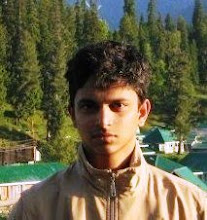In a tiny little village in north Goa, Lourdes Conceicao Lobo is celebrating her 100th New Year. My dear grandmother takes a walk down memory lane, and tells me how the world has changed.
Nigel Britto
The walls at her home hint at a remarkable journey. Although freshly painted, the monotony of the bright yellow takes a break with various pictures and portraits from different decades of the previous century, many of which were put up by the lady herself. Among the many tapestries is a papal blessing, a parchment sealed and autographed by the late Pope John Paul II.
While liberated Goa celebrates its 48th New Year on Thursday, Lourdes Conceicao Lobo of Camurlim, Bardez, celebrates her 100th. Talking to the centenarian in her living room, she doesn't appear hundred; her voice, quivering with age, is soft as she switches between English, Konkani and Portuguese when the English word fails to capture her thought.
For the hundredth time, she will celebrate the occasion with her family. Just as she has done since 1908. Looking up from her newspaper in response to a question, she takes the opportunity to stress the importance of family get-togethers. "Christmas and Easter, especially, are family feasts, to be celebrated by the family," says the feisty woman, who was born decades before Mario Puzo raised the status of blood-ties to an iconic level with his series of novels set in the Italian hinterland.
Back to the newspaper. She loves them, according to the two daughters she lives with, and can't survive without them. "Since I have free time, I first go through the obituaries, so I can pray for the dead," she says, matter-of-factly. (Her patron saint, incidentally, is St Joseph, patron of a happy death.)
There's one major difference though, according to her, which distinguishes life in the early 1900s with that today. "It's rotten today. Human beings are rotten!" she emphasizes acerbically. "There is no love, no unity. Read the papers, they're full of murder, rape, suicide and other crimes," says Lobo, who has seen the inside a hospital only at the birth of her four children.
She reminisces, "Look at how we built our houses in the past," she says, gesturing at the Indo-Portuguese styled house she has lived in since 1963. "There were no robberies the way there are now. We could live our lives in peace, without fear. These days, people are driven by fear hence they build grilled prisons for themselves," she says, referring to modern urban architecture.
The centenarian also rues the decline of the family as a unit. "There isn't any unity now! We see around us broken families, broken homes. Parents don't look after children and correspondingly, kids don't look after their parents. These kind of things were an extreme rarity last century," says this grandmother of six who has lived through both world wars.
Another missing aspect is the respect for your fellowmen. "Youth no longer have any respect for elders. When I was young, we used to respect and seek blessings from older people. Now, that respect is reserved only for money," she declares scathingly, before continuing in the same vein, "People don't even have time for the Rosary (family or community prayer). They only have time to gossip!"
At hundred, this St Joseph devotee is one of the oldest living people in Goa. "No secret to a long life," she says. "Just the Will of God." And she believes that she has the perfect solution to the present mess our society is in. It's the same philosophy Jesus preached two millennia ago. "Love God, and love thy neighbour," she says, with a twinkle in her eye.
This article was first published on The Times of India, Goa edition, on its edition dated January 1, 2009.


1 comment:
How cute is your grandmom, dude ? She opens the obituaries to pray for random people who died. Maybe, just maybe, that is the secret to a long life.
I want a long life with no death, not even a happy one !
Post a Comment